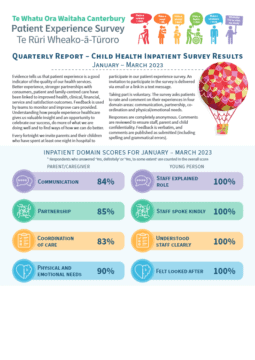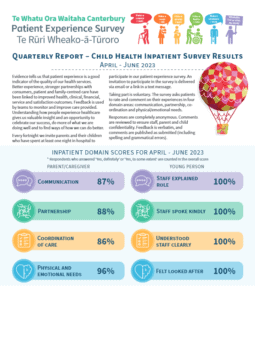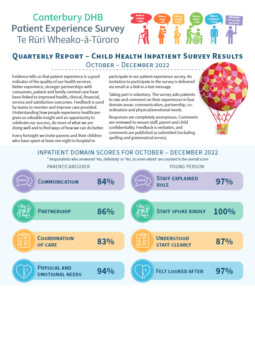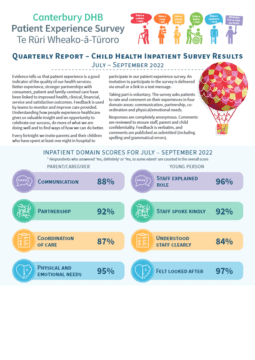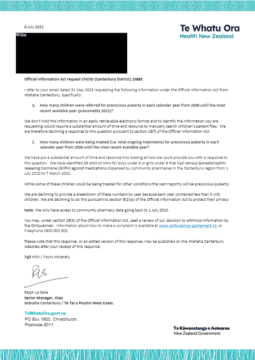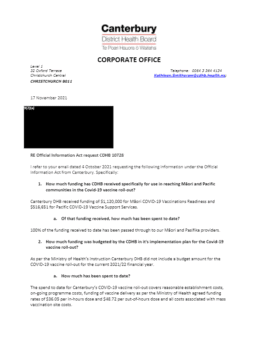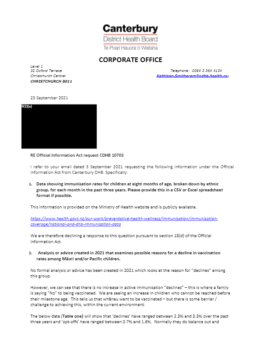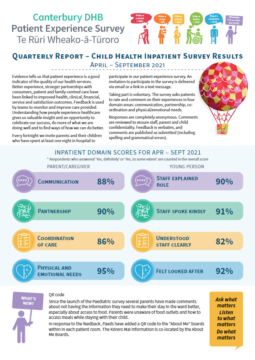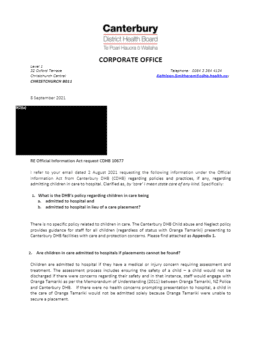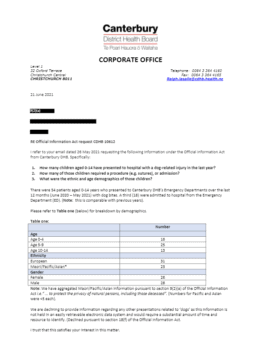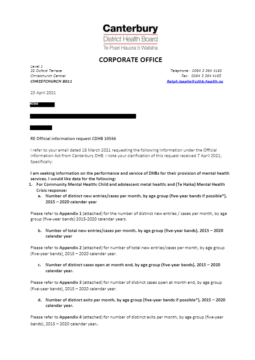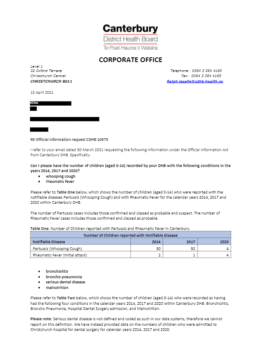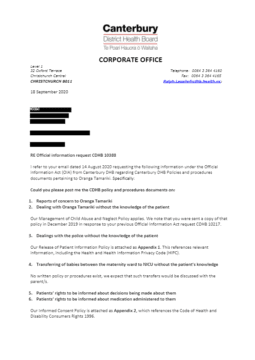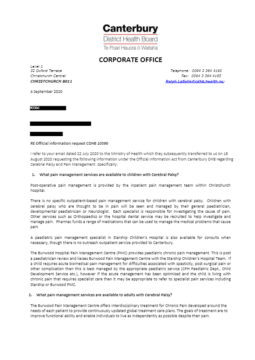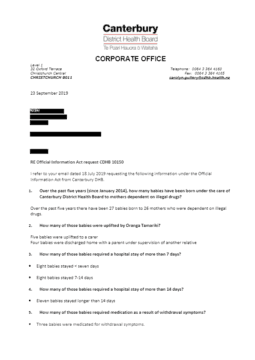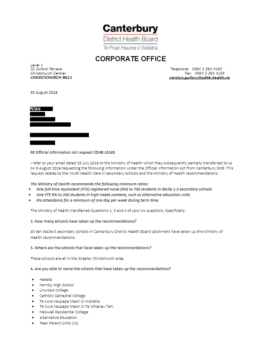We know that patient experience is a good indicator of the quality of our health services. Better experience, stronger partnerships with consumers, patient and family-centred care have been linked to improved health, clinical, financial, service and care outcomes. Patient feedback is used by our teams to monitor and improve the care we provide.
Understanding how people experience healthcare gives us valuable insight and an opportunity to celebrate our success, do more of what we are doing well and to find ways of how we can do better.
Every fortnight we invite patients who have spent at least one night in hospital or have attended an outpatient appointment to participate in our patient experience survey. An invitation to participate in the survey is delivered via email or a link in a text message. Taking part is voluntary.
If you receive an electronic invite – please complete it! We really value your time to provide us with feedback. Be assured your responses are completely anonymous.
Tags Child healthPatient Experience SurveyPatientsQualitySafety
More informationDownload pdf (1MB)

